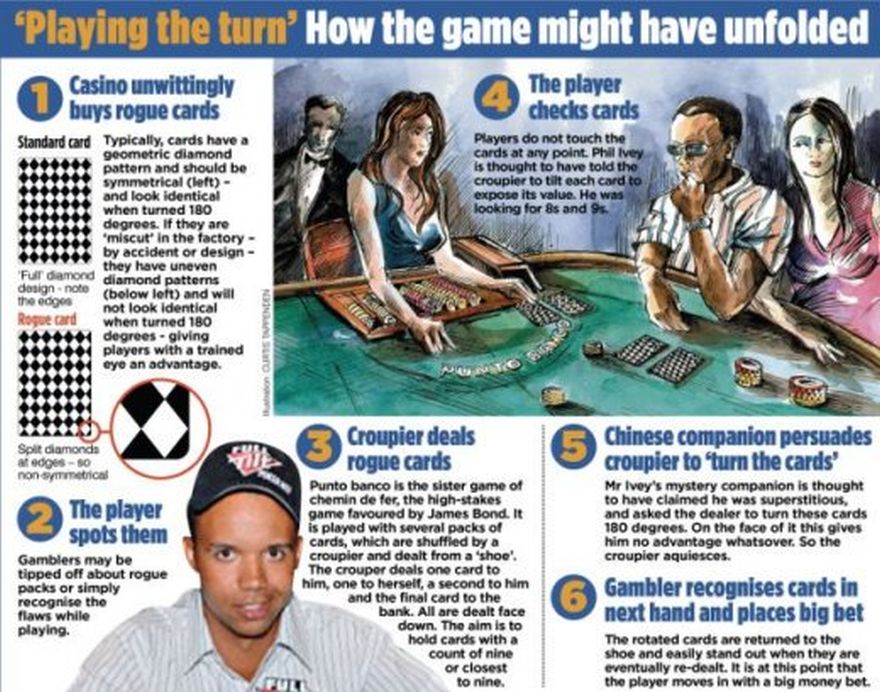How Bryn Kenney Got BUSTED In The Biggest CHEATING Scandal In Poker History

The Golden Boy of Poker
For years, Bryn Kenney wasn’t just another name on the circuit — he was the name.
With his eccentric fashion sense, sharp tongue, and fearless style, he became one of the most talked-about figures in poker. By 2024, he had amassed more than
He wasn’t just rich — he was iconic. He held the bracelet, he held the records, and he held the spotlight.
But what happens when the golden boy of poker suddenly finds himself accused of being the game’s biggest villain?
From Magic Cards to Millions
Bryn’s story had always sounded like a poker fairy tale. Born in Long Beach, New York in 1986, he discovered competition early through
By 2010, Bryn was cashing in big events. By 2014, he had a WSOP bracelet on his wrist. By 2019, he was banking
Bryn Kenney wasn’t just playing the game. He was defining it.

Then Came the Allegations
In 2021, whispers turned into screams.
High-stakes pro Martin Zamani dropped a bombshell: Bryn Kenney, the face of poker dominance, was running an underground cheating empire.
The accusations were jaw-dropping:
-
Collusion and chip dumping on online poker sites.
-
Ghosting and multi-accounting, where one player secretly took control of another’s account.
-
Real-Time Assistance (RTA), software designed to play almost perfect poker.
-
And perhaps strangest of all —
cult-like rituals demanded of players in Bryn’s “stable.”
It was the kind of story you’d expect from a Netflix drama, not the poker felt.
Martin Zamani’s Explosive Confession
It all blew up on Doug Polk’s podcast.
Zamani, visibly nervous but unflinching, detailed how Bryn had pressured players in his stable to collude during online events on GGPoker.
He alleged that:
-
Players were instructed to dump chips
into Bryn’s stack at critical points. -
Weak opponents, like poker pro Lauren Roberts, were targeted and allegedly ghosted by Bryn himself.
-
Stable members were forced into bizarre personal rules, from diet restrictions to a shocking claim that Bryn pushed players to take part in the
Kambo frog poison ritual.
The poker world sat in stunned silence as Zamani laid out the accusations. For many, it was the darkest scandal since the infamous Ultimate Bet “God Mode” affair.

Screenshots, Secrets, and Taco Bell
The details only fueled the fire.
Zamani produced alleged chat logs between himself and Bryn, with instructions that looked like direct orders to collude.
There were bizarre side stories too:
-
Bryn reportedly berated a player for sneaking tacos from Taco Bell, claiming it violated his “lifestyle code.”
-
Luke Schwartz, a volatile high-stakes pro, was allegedly forced to paint a mural of Bryn
just to earn a spot in his stable.
What should have sounded absurd instead began to paint a picture: a cult-like operation built around one man’s hunger for control.
Millions Made in the Shadows
Perhaps the most shocking claim?
That Bryn’s network of ghosting and RTA-fueled horses was pulling in up to $2 million per week on GGPoker.
If true, it meant that the poker world’s top money leader wasn’t winning through brilliance alone. He was winning because the deck itself was stacked in his favor.

Bryn Kenney Fights Back
Bryn didn’t stay silent. He lashed out on Twitter, in interviews, and to anyone who would listen.
“Martin knows he is lying… fabricating truth. This is jealousy, nothing more.”
He painted Zamani as bitter and unreliable, someone with a vendetta. He insisted his success was the result of skill, discipline, and hard work — not collusion or cheating.
And yet… the more Bryn spoke, the less convincing it seemed.
The Court of Public Opinion
No judge, no jury, no official punishment.
That’s the nightmare and the beauty of poker.
Bryn never faced legal consequences. There were no charges, no prison time. In the eyes of the law, he remained clean.
But in the eyes of the poker community? His name was scorched.
Every tournament he entered afterward carried whispers. Every big win felt tainted. The respect he once commanded had eroded into suspicion.

The Bigger Problem: Poker’s Dark Side
The Bryn Kenney scandal wasn’t just about one man.
It ripped the curtain open on online poker’s most dangerous flaws.
How do you stop:
-
Collusion between dozens of accounts?
-
Players secretly sharing hole cards over Discord?
-
Advanced software that can “solve” poker decisions in real time?
The game once celebrated as a pure test of skill suddenly looked fragile — vulnerable to manipulation from its very core.
Will Poker Ever Recover?
In the aftermath, online sites like GGPoker scrambled to improve detection systems. Talk of independent regulation surged. Players demanded harsher punishments, stricter oversight, and more transparency.
But for many, the damage was already done.
If Bryn Kenney, one of the brightest stars in the game, could be tied to something this sinister… who else was cheating?

Bryn’s Legacy: Legend or Villain?
Today, Bryn Kenney’s legacy hangs in limbo.
He’s still the all-time tournament money leader. Still a bracelet winner. Still the man who once won $20 million in a single day.
But to many, he’ll forever be the face of poker’s darkest scandal.
A cautionary tale of how ambition can twist brilliance into something far uglier.
Final Thoughts
Bryn Kenney wanted to be remembered as the greatest poker player alive.
Instead, he may be remembered as the man who showed the world just how broken poker can be.
Was it jealousy-fueled lies? Or the truth finally exposed?
One thing is certain: the Bryn Kenney scandal has forever changed the way we look at poker’s biggest names.
Because in a game built on trust, deception, and reputation… once you’re accused of cheating, you never play the same hand again.
So what do you think? Should Bryn Kenney be banned from poker forever, or is he being unfairly targeted?
Phil Ivey vs. the Casinos: Inside the $20 Million Edge-Sorting Controversy

In the world of gambling, few names carry as much weight — or fear — as Phil Ivey’s. For decades, he’s been a symbol of pure poker genius, a man whose instincts and calm under pressure have made him nearly untouchable at the table. But away from poker, Ivey found himself at the center of a storm that had nothing to do with Texas Hold’em and everything to do with baccarat, two of the world’s biggest casinos, and a staggering $20 million.
The Accusation That Shook His Reputation
It all began with two casinos — the Borgata in Atlantic City and Crockfords in London — accusing Ivey of cheating them out of over $20 million while playing baccarat.
In the gambling world, being labeled a “cheater” is as bad as it gets. Ivey himself put it plainly: “Once you get ‘cheater’ next to your name, especially in my business — the business of gambling — it’s really bad. That’s the worst thing you could be labeled as.”
The problem, as Ivey sees it, is that casinos often blur the line between “cheating” and “advantage play.” And in this case, he insists he was guilty of the latter — not the former.

What Is Edge Sorting?
The controversy revolves around a technique called “edge sorting.” It’s a method where a player spots tiny, often unintentional printing imperfections on the backs of playing cards. By recognizing these differences, a skilled observer can identify certain high-value cards and adjust their bets accordingly.
To Ivey, this wasn’t cheating — it was using his observation skills to legally gain an edge, just as a sharp poker player might read a tell or recognize a betting pattern.
To the casinos, it was manipulation that crossed the line.
The Borgata Case
At the Borgata, Ivey reportedly won $9.6 million over several baccarat sessions. The casino initially paid him, but later sued to get the money back after realizing he had been employing edge sorting alongside a playing partner.
Borgata’s argument was simple: the game was no longer random once Ivey used the card imperfections to his advantage. To them, that was cheating.
Ivey’s counterargument? The casino agreed to his requests — including using a specific brand of cards and an automatic shuffler — without ever asking why. He didn’t mark the cards or tamper with the deck. He simply noticed something they didn’t.

The Crockfords Case
In London, at Crockfords Casino, the story was eerily similar — but with a different outcome. There, Ivey won £7.7 million (about $12 million at the time) in a single session.
Instead of paying him, Crockfords investigated, discovered his edge-sorting tactic, and withheld the winnings entirely. Ivey sued the casino in British court, claiming he had played fairly.
In the end, the UK’s Supreme Court ruled against him, stating that while Ivey might not have believed he was cheating, his actions still amounted to “cheating” under the law because they interfered with the game’s integrity.

Advantage Play vs. Cheating — Where’s the Line?
For seasoned gamblers — especially those in the 40–65 age range who’ve seen the game evolve over decades — the Ivey controversy raises an uncomfortable question: when does clever play become cheating?
To many, advantage play is part of the thrill. Card counting in blackjack, reading tells in poker, or spotting patterns in roulette spins — these are celebrated skills.
But casinos see it differently when the edge feels too sharp. In their eyes, the house must always have the ultimate advantage. Anything that tilts the balance, even without physically altering the cards or breaking explicit rules, can be deemed unacceptable.
The Toll on Ivey’s Legacy
For Ivey, the damage wasn’t just financial — it was personal. In a profession built on trust, even a whisper of dishonesty can haunt a player for life.
“I did nothing wrong,” he maintains. “But the casinos say I did.”
It’s a battle of narratives: Ivey as the misunderstood genius who outsmarted the house, versus Ivey as the gambler who crossed an ethical line.

The Bigger Picture
What makes the story so gripping isn’t just the money or the celebrity involved — it’s what it says about the gambling world itself. Casinos market themselves as places where you can win big if you’re lucky (and skilled). But when someone wins too big, too often, the rules suddenly feel… flexible.
Ivey’s saga forces players and fans alike to confront a hard truth: in the casino’s eyes, there’s a fine line between being smart enough to win and being “too smart” to be allowed to win.
The Verdict — Still Divisive
Years later, the debate still rages. To some, Ivey will always be the man who beat the casinos at their own game, punished not for cheating but for being better than the house. To others, he crossed an invisible line that keeps the game fair for everyone.
One thing is certain: few stories capture the tension between player and casino as vividly as Phil Ivey’s edge-sorting battles. They’ve become a defining chapter in the life of one of the greatest — and most controversial — gamblers of all time.





